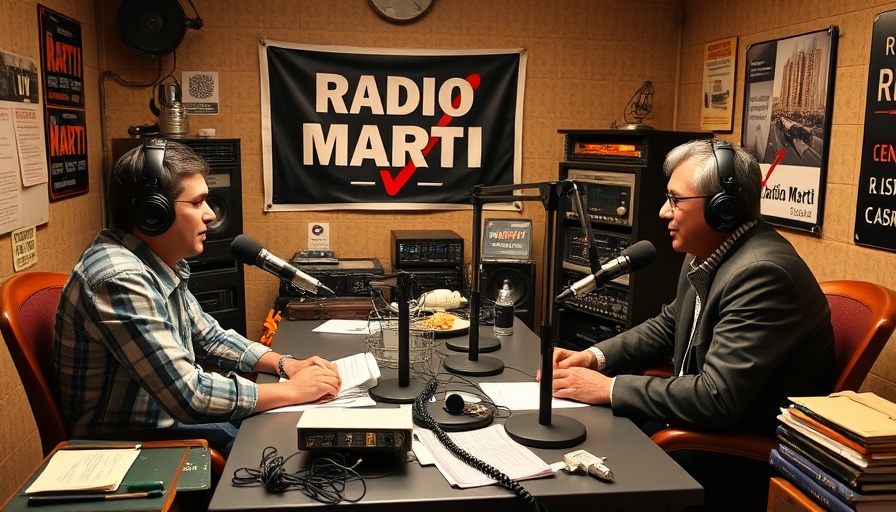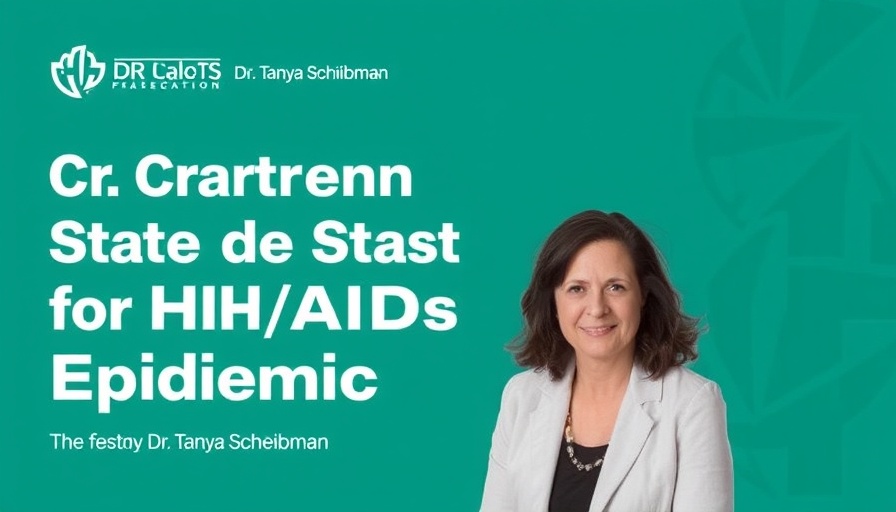
Trump Administration Targets U.S. Media Outlets: What This Means for Free Speech
On March 14, 2025, President Donald Trump took decisive action through an executive order aimed at slashing the functions of several federal agencies, including the U.S. Agency for Global Media (USAGM). This agency oversees critical outlets like Voice of America and Radio Martí that play a vital role in disseminating news into areas with limited access to free information. The cuts have resulted in placing employees of these outlets on administrative leave, effectively stifling what has been a beacon of hope for many living under authoritarian regimes.
The Legacy of Radio Martí: Impact and Legacy
Radio Martí has been broadcasting pro-democracy messaging into Cuba since 1985. While it served as a significant symbol of the Cuban-American community's resistance against the Castro government, questions have emerged regarding its efficacy. As noted by Andy Gomez, a prominent figure within the Cuban-American community, many Cubans on the island report that they are not even listening to the broadcasts. This shift raises serious concerns: are these media outlets failing to reach their intended audience?
Chilling Effects on U.S. Media Freedom
The Trump administration's cuts have been framed as a way to streamline government operations. However, critics argue that the action undermines the long-held principles of free speech that the U.S. has championed globally. Michael Abramowitz, director of the Voice of America, stated that this marks a historical turning point, indicating, "For the first time in 83 years, the storied Voice of America is being silenced." As fewer resources are allocated to promote democracy abroad, the stakes for maintaining U.S. influence in regions susceptible to disinformation become increasingly high.
What Does This Mean for Global Communication?
The fallout from these cuts is likely to affect how the U.S. is perceived around the world. Without robust media outlets like VOA, the narrative about America’s role in the global arena could easily be shaped by adversaries. With accusations of co-opting media for propaganda purposes, the implications of reduced funding could alienate vital audiences that depend on these platforms for reliable information.
Further Consequences for Federal Agencies
Trump's cuts are not isolated; the broader strategy seems to involve dismantling any programs that don't align with his vision of government. As reported by Politico, other agencies vulnerable to cuts include the Institute of Museum and Library Services and organizations focused on social equity. Such moves point to an administration inclined to prioritize certain narratives while actively diminishing support for others.
In Conclusion: The Path Forward for Media Advocacy
The reductions in staff at influential media outlets raise crucial questions about America's commitment to free press principles, especially in the fight against oppressive regimes abroad. Advocacy groups, including Reporters Without Borders, are calling for immediate restoration of funding and support to media organizations that serve both domestic and international audiences. As these entities strive to uphold democracy and educate the global public, it becomes imperative for Congress and the international community to take action.
 Add Row
Add Row  Add
Add 



Write A Comment